E program Japanese Masterpiece Selection 2: The Beauty of Nature
Featuring, among other things, the delicate beauty emanating from snow crystals and the pulsation of life transmitted by cell division, this is a program that entrances us with the beautiful shapes to which nature gives birth.
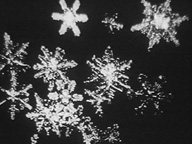 Snow Crystals (prewar version)
Snow Crystals (prewar version)
(“Yuki no kessho”)- JAPAN / 1939 / English / B&W / Video (Original: 16mm) / 13 min
Director, Photography: Yoshino Keiji
Technical Advisor: Nakaya Ukichiro
Assistant Photographer: Oguchi Teizo
Production Company: Toho Film Co., Ltd.
Source: Nonaka Kazutaka
With the assistance of Nippon Eiga Shinsha
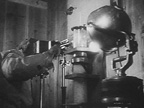 Highly appraised in overseas academic conferences, this is a film of Hokkaido University “Professor of Snow” Nakaya Ukichiro’s (1900–1962) research in a cryogenic laboratory. Cinematographer Yoshino Keiji (1906–1972), who came from narrative film, photographed the figures of the glasswork-like snow crystals. In later years he was a successful producer for Iwanami Productions.
Highly appraised in overseas academic conferences, this is a film of Hokkaido University “Professor of Snow” Nakaya Ukichiro’s (1900–1962) research in a cryogenic laboratory. Cinematographer Yoshino Keiji (1906–1972), who came from narrative film, photographed the figures of the glasswork-like snow crystals. In later years he was a successful producer for Iwanami Productions.
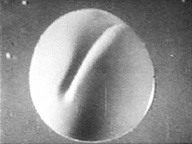 The Birth of Frogs
The Birth of Frogs
(“Kaeru no hassei”)- JAPAN / 1955 / Japanese / B&W / 16mm / 11 min
Director, Photography: Yoshida Rokuro
Script: Yoshida Rokuro, Oguchi Hachiro
Producer: Yoshino Keiji
Production Company: Iwanami Productions
Planning, Source: Kyohai Educational Media, Inc.
Observe what it looks like on film when a frog is brought into being, starting as an egg and passing through the tadpole stage. The sight of egg cells splitting one after the next is movingly beautiful. Yoshida Rokuro (1919–1995), who worked as Yoshino Keiji’s assistant, produced many of the wonderful Iwanami and Toei films that capture the microscopic world.
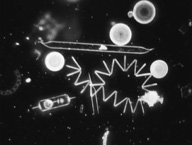 Marine Snow: The Origin of Oil
Marine Snow: The Origin of Oil
(“Marin Snow: Sekiyu no kigen”)- JAPAN / 1960 / Japanese / Color / Video (Original: 35mm) / 25 min
Directors: Noda Shinkichi, Onuma Tetsuro
Script: Yoshimi Yutaka
Director of Photography: Kobayashi Yonesaku
Photography: Kasuga Tomoyoshi, Toyooka Sadao
Music: Mamiya Michio
Commentary: Takashima Yo
Producer: Okada Sozo
Planning: Maruzen Oil (now Cosmo Oil Company, Ltd.)
Production Company: Tokyo Cinema Co., Inc.
Source: TokyoCinema Inc.
This work, featuring color film of the beautiful sight of sea plankton, has been praised all over the world. Tokyo Cinema, established by Okada Sozo (1903–1983), brought together microscopy expert Kobayashi Yonesaku (1905–2005) and other excellent staff and led the world of science cinema through the 1950s and 60s.
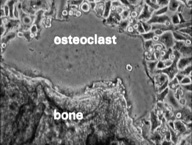 The Bone II
The Bone II
- JAPAN / 1986 / Japanese / Color / Video (Original: 16mm) / 22 min
Director: Kaneko Fumio
Script: Funakoshi Mieko
Photography: Sakamoto Yuzuru, Kaneko Fumio
Music: Ichiyanagi Toshi
Narrator: Kobayashi Kyoji
Scientific Advisor: Kumegawa Masayoshi
Producer: Kobayashi Yonesaku
Planning: Teijin; Fujisawa Pharmaceutical Co., Ltd.
Production Company: Yone Production Co., Ltd.
Source: Science Film Museum (NPO)
Not only do they serve to support the body, bones also serve as a repository of calcium. Explore how bones receive the hormonal information that the body gives off, and how the workings of the bones maintain the balance of the internal system. A triumphant medical movie by Yone Productions Co., a spinoff of Tokyo Cinema.
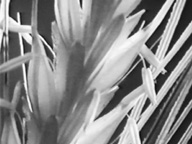 A Grain of Barley
A Grain of Barley
(“Hitotsubu no mugi”)- JAPAN / 1962 / Japanese / Color / 35mm / 28 min
Director, Script: Matsukawa Yasuo
Photography: Sato Masamichi
Time-Lapse Photography: Suzuki Kiyoji
Illustrations: Kajikawa Katsuyoshi
Music: Mamiya Michio
Narrator: Yagi Jiro
Supervisor: Kano Ryuichi
Planning: Asahi Breweries, Ltd.
Production Company: Nippon Sangyo Eiga Center, Ltd.
Source: Crix, National Film Center
Treating business endeavors to breed barley for beer, exactly the kind of theme we would expect from the Golden Age of PR movies, this singular work ventures into that phenomenon of life known as genetics. This was a debut work of substance for Matsukawa Yasuo (1931–2006), a rare auteur who continued to make visual poetry until his passing last year.
